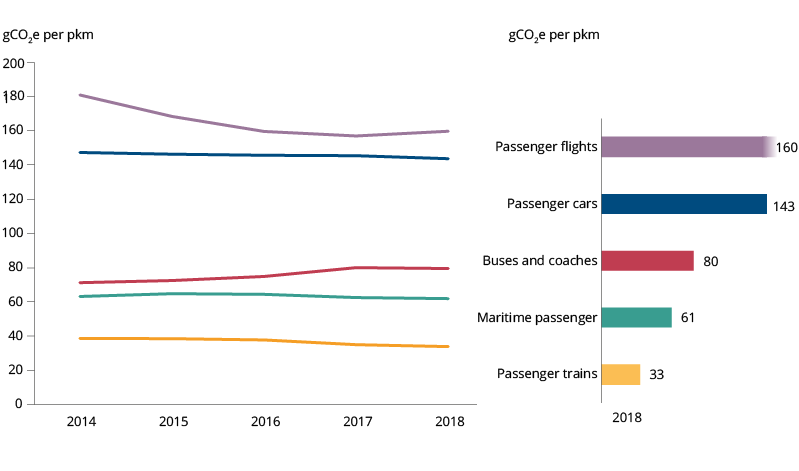Transport equals emissions - but how much?
Of all the CO2 or Greenhouse gas emissions (GHG) produced by human activity, transportation accounts for 16,2%.
By far the biggest contributor of GHG emissions in the transportation sector is road transportation, the biggest part of that being passenger travel such as cars, motorcycles, buses and taxis.
Source: LINK
Besides GHG emissions - CO2 - there are also other types of air pollutants like NOx (Nitrogen oxides) emissions being produced by burning fuel in an internal combustion engine (ICE). All ICE vehicles produce both kinds of emissions. The NOx emissions and other types of air pollutants are what creates smog and air pollution that in turn causes cancer and respiratory diseases, while the GHG emissions contribute to the greenhouse effect that drives weather- and climate change. LINK
How do we get there?
Traffic will always be a necessity in a modern society, but there are still a lot of things we can do as individuals to minimise emission, congestion and pollution from traffic by making some new choices in our transportation consumption.
When we look at emissions it is well known that public transport such as ships, trains and buses emit much less per passenger than cars and planes.

But cars are still the preferred option for many commuters for reasons that we will discuss below. But let us first look at what types of cars would be the best option from an emission standpoint.
When we look at emissions it is well known that public transport such as ships, trains and buses emit much less per passenger than cars and planes.
Source: EEA LINK
But cars are still the preferred option for many commuters for reasons that we will discuss below. But let us first look at what types of cars would be the best option from an emission standpoint.
We all need to go somewhere
| But we still need to move around, and so we still drive cars to and from work, visits and vacations, and we still need our supermarkets stocked with food and other items, so the ships and trucks are still hauling our next purchase to us from the other side of the globe. All this traffic causes, besides emissions, traffic congestion. This is a big problem in cities around the world, and commuting long distances is a normal way to get to work. In the EU the average driving commute has gone down from nearly 13.000 km a year in 2000 to 11.300 km in 2019. LINK |
 |
